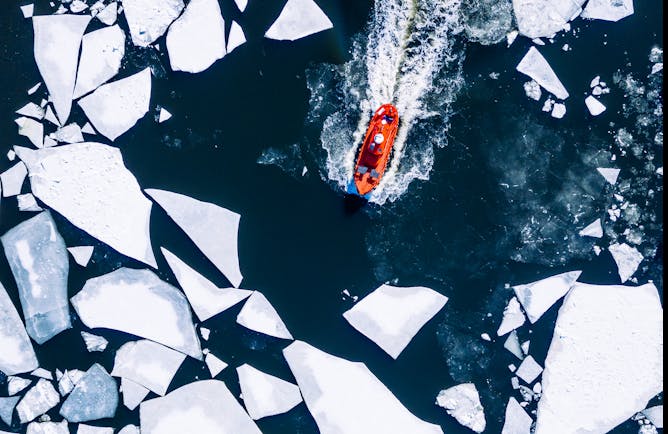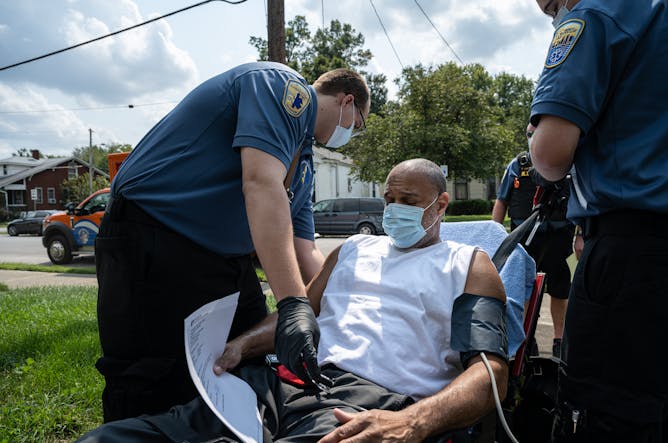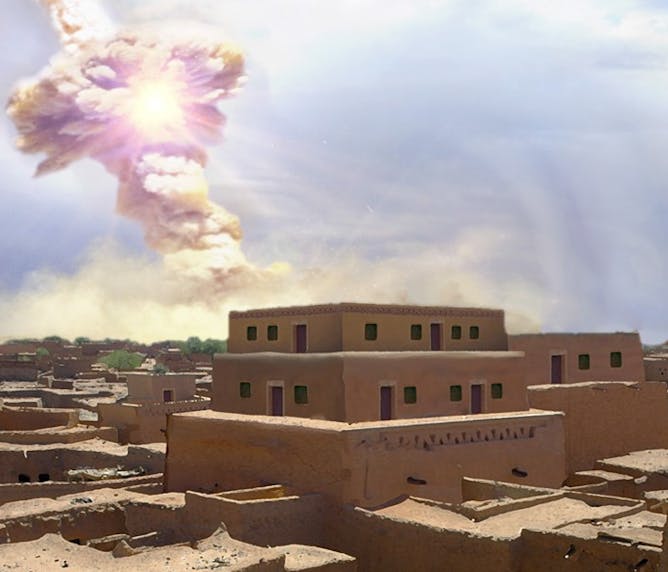|
There is some jaw-dropping data in our article today on how much Arctic sea ice has declined. One data point – that the amount of the Arctic covered by sea ice at its minimum extent each September has dropped by roughly half since the 1980s – reflects how fast ice is melting. But our story, written by two NASA sea ice scientists, goes far deeper by explaining the complex dynamics at play that affect annual measurements as well as local conditions. “Despite all this uncertainty,” the scientists write, “it’s looking pretty likely that summer ice-free Arctic conditions are not too far away.”
In addition to covering breaking science news, our team of editors is always looking for fresh ways to get you reliable information on the pandemic. A good example is a story written by University of Virginia infectious disease physician Patrick Jackson which provides an excellent and detailed overview of the many treatments for COVID-19, including the infamous ivermectin. A point I didn’t fully appreciate before reading this is that different drugs, such as antivirals or anti-inflammatories, can aid patients at different phases of the disease’s progression.
Our most widely read story over the past week came from the science desk, a piece that describes how a team of archaeologists sifted through many clues to conclude that there was a devastating asteroid strike near the Dead Sea during the Middle Bronze Age. In addition to being an accomplished archaeologist, the author – Christopher R. Moore from the University of South Carolina – knows how to write a good article lead: “As the inhabitants of an ancient Middle Eastern city now called Tall el-Hammam went about their daily business one day about 3,600 years ago, they had no idea an unseen icy space rock was speeding toward them at about 38,000 mph.”
In other science news this week:
Please reply to this email if there’s a subject you’d like our team of science editors to investigate.
|

Arctic sea ice has been declining overall since NASA began tracking it by satellite in the 1970s.
Miemo Penttinen
Alek Petty, NASA; Linette Boisvert, NASA
A closer look at how ice cover changed through the months offers some important insights into the role of climate change and why every year isn’t a record.
|

Emergency medical technicians aid a COVID-19 patient at his home in Louisville, Kentucky. Like much of the U.S., Louisville is experiencing an uptick in COVID-19 patients requiring emergency transport to medical facilities.
John Cherry/Getty Images
Patrick Jackson, University of Virginia
Medications to treat COVID-19 are in no way a substitute for the vaccine. But under the right circumstances, some show great promise for helping patients.
|

Artist’s evidence-based depiction of the blast, which had the power of 1,000 Hiroshimas.
Allen West and Jennifer Rice
Christopher R. Moore, University of South Carolina
New research suggests that fire from the sky in the form of a small asteroid annihilated a city near the Dead Sea 3,600 years ago.
|
Other good finds
|
-
Laura Corlin, Tufts University
The new global air quality guidelines are the World Health Organization’s first update since 2005. Scientists know far more now about the serious risks these pollutants pose to human health.
-
Iain Boyd, University of Colorado Boulder
Electromagnetic beams of the right power and wavelength can cause pain and zap electronics. Could they also be used to disrupt a person’s nervous system?
-
Drew Shindell, Duke University
A large amount of methane emissions come from natural gas infrastructure and landfills – all problems companies know how to fix.
-
Laura (Layla) H. Kwong, University of California, Berkeley
Since the coronaviurs first began spreading around the globe, people have debated how effective masks are at preventing COVID-19. A year and a half in, what does the evidence show?
-
Marie Simonin, Inrae; Emily S. Bernhardt, Duke University
Rivers are among the most embattled ecosystems on Earth. Researchers are testing a new, inexpensive way to study river health by using eDNA to count the species that rivers harbor.
-
Marcia Rieke, University of Arizona
The largest orbital telescope ever made will allow astronomers to study the atmospheres of alien planets, learn about how stars form in the Milky Way and peer into the farthest reaches of the universe.
-
Sierra Carter, Georgia State University
New research points to a biological way that racism can lead to health disparities.
|
|